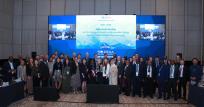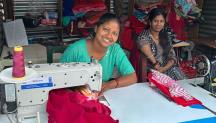

Historic Renewable Energy Compact for Peacekeeping Formally Launched at IRENA Assembly
Newsletter
The United Nations deploys peacekeeping missions in fragile states, often in regions with poor access to energy and high vulnerability to climate change. With 90 per cent of electricity needs coming from diesel generators, the numerous missions of the United Nation’s peacekeeping have an energy profile largely based on fossil fuel.
In 2019, the UN Secretary-General António Guterres committed the UN Secretariat to slash its carbon emissions and dramatically increase its use of renewable energy to 80 percent by 2030. This is a crucial step forward for the UN in efforts to lead by example, and to transform its operations. The commitment presents a unique opportunity for both the UN and host countries to simultaneously deliver on climate, development, peace, and security objectives.
To accelerate this transition, the UN Department of Peace Operations (UNDPO), UN Department of Operational Support (UNDOS), IRENA, Denmark, Norway, and the UAE announced the “Energy Compact on renewable energy for UN Peacekeeping” in 2021. On 13 January, the Energy Compact was formally launched in Abu Dhabi on the pre-assembly day of the 13th IRENA Assembly in a session titled, “High-Level meeting on the Energy Compact on renewable energy for United Nations Peacekeeping.”
“Renewable energy for peacekeeping can decarbonise its operations, reduce pollution and environmental footprint, and provide an anchor client for energy providers in the local market. In turn, these actions can have positive effects on local communities and pave the way for others to develop more projects, and create new jobs and business opportunities,” said Francesco La Camera, Director-General of IRENA. He further reaffirmed IRENA’s commitment to supporting the transition.
The high-level session discussed aligning climate and development objectives related to the greening of peacekeeping operations and outlined key opportunities for partners to join and promote the Energy Compact’s realisation.
Highlighting UN Peacekeeping’s heavy reliance on fossil fuels in field missions, Lisa Buttenheim, Assistant Secretary-General for Support Operations, Department of Operational Support, UNDOS, said, “The diesel generators used in peacekeeping contribute a significant amount of greenhouse emissions amounting to half a billion tons of carbon dioxide-equivalent-in the year 2021-22. The transition to renewable energy is a strategic priority for UN Peacekeeping and a key objective of our environment strategy.”
Martha Ama Pobee, Assistant Secretary-General for Africa, Departments of Political and Peacebuilding Affairs and Peace Operations (DPPA-DPO), said leveraging UN peace operation footprints to build a new clean energy infrastructure in fragile settings can help to diversify the host country’s energy base, reduce its near total reliance on oil and provide new opportunities for capacity building and economic development.
Calling upon more countries to join the Energy compact, Dr Nawal Al-Hosany, Permanent Representative of the UAE to IRENA, said “By working together, we can help to develop an environment where peacekeeping missions can enhance their positive impact on communities and continue their vital journey to solve the energy trilemma.”
Hans Olav Ibrekk, Special Envoy, Climate and Security, Section for Energy, and Food Security, Ministry of Foreign Affairs, Norway, said renewable energy offers the UN community an exceptional opportunity to simultaneously strengthen peacekeeping operations and deliver a positive legacy for host communities.




